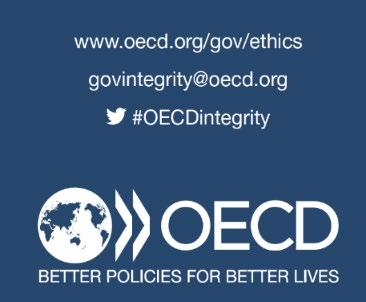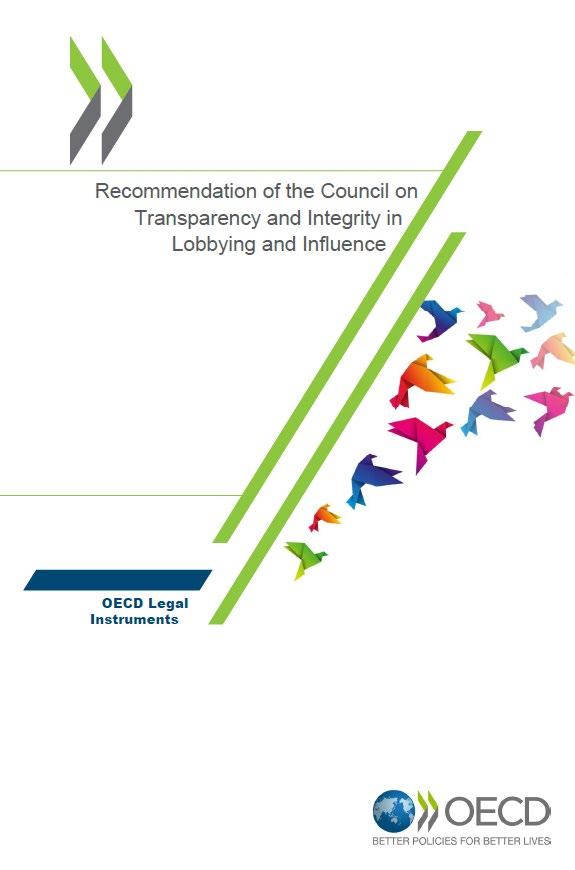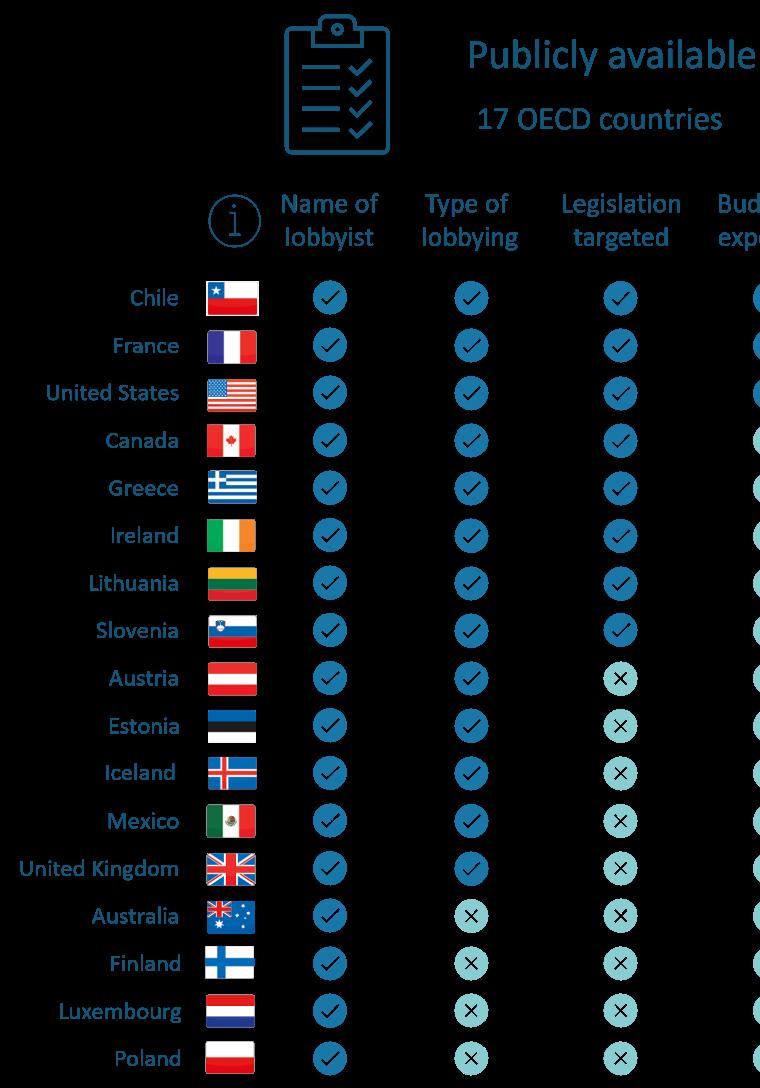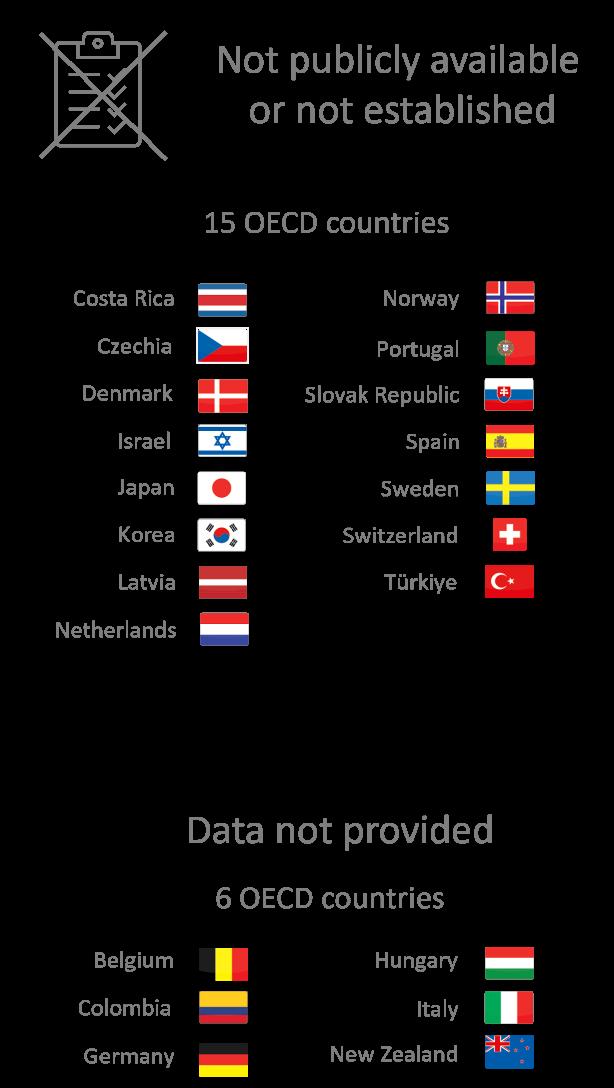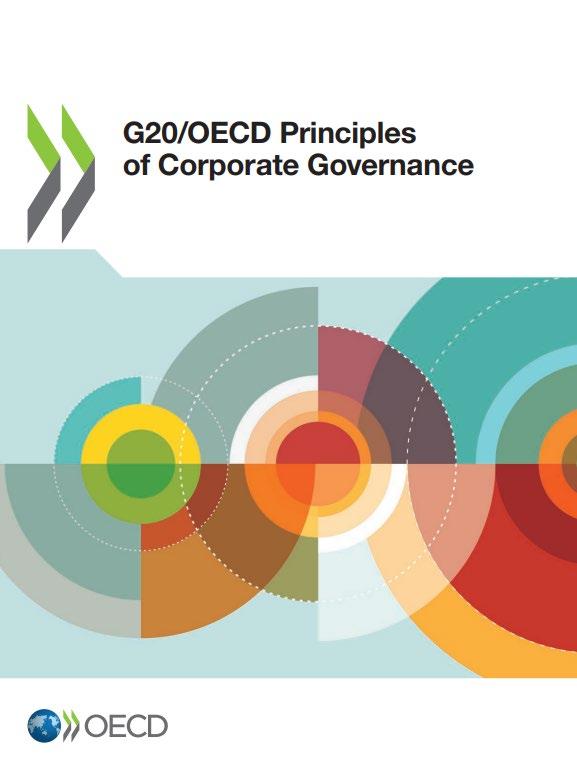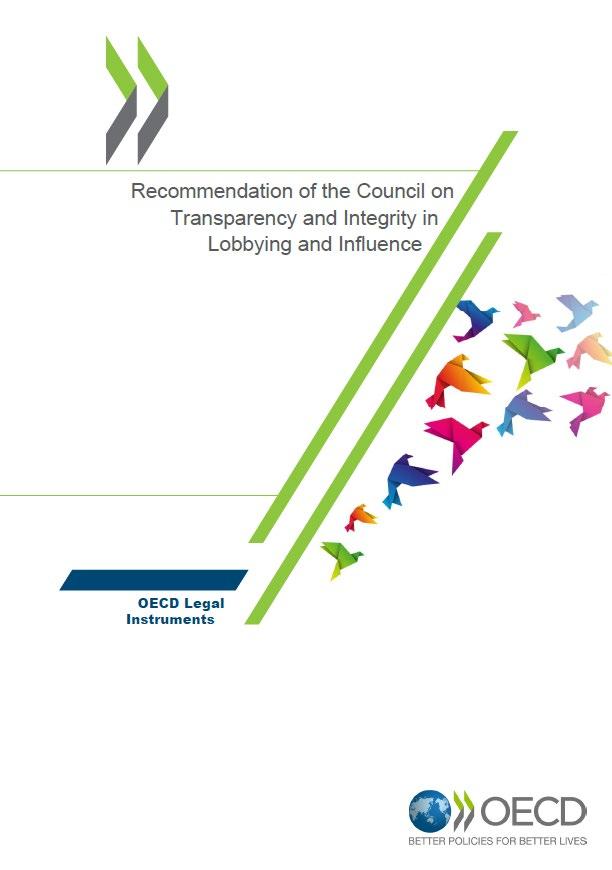The OECD Standard on Transparency and Integrity in Lobbying and Influence
A Global Framework to Level the Playing Field
146th meeting of the Competition Committee
Discussion on Corporate Influence in Competition Policymaking
Nejla Saula, Head of Division
OECD Anti-Corruption and Integrity in Government
> Adopted in 2010, revised in 2024.
> Recognises lobbying and seeking to influence government decisions as legitimate ways in which stakeholders participate in public decision-making processes and support informed decisions.
> Provides concrete guidance for governments on ensuring integrity, transparency, openness, and equity in public decision-making processes as essential conditions for both sound policy outcomes and public trust:
> 43% of OECD citizens believe that it is likely that their national government would accept the demands of a corporation promoting a policy beneficial to their industry but harmful to the society as a whole
[2023 OECD Trust Survey].
> First international standard that takes a bird’s-eye-view of the lobbying and influence landscape.
OECD Recommendation on Transparency and Integrity in Lobbying and Influence (2024)
Objectives and definitions (Principles I & II)
To set out principles on transparency and public integrity at the interactions between government and lobbying and influence actors in democratic systems
Principle III. Strengthen transparency and openness of lobbying and influence activities in public decision-making processes, including from foreign state interest actors.
Principle VII. Establish a public integrity framework for public officials adapted to the risks related to lobbying and influence activities.
Principle IX. Safeguard those that scrutinise and/or report violations of the policies and rules on lobbying and influence activities, such as media and civil society.
Principle V. Increase transparency on the lobbying and influence activities of all lobbying and influence actors.
Principle VI. Promote a public integrity framework aimed at ensuring integrity when lobbying and influence actors, engage in lobbying and influence activities.
Principle X. Ensure there is an oversight function on lobbying and influence activities with the capacity to enforce policies and regulations.
Principle VIII. Implement an effective system to manage pre/post public office and employment risks and other conflict-of-interest situations, whether at the domestic or international level.
Principle IV. Implement transparency and integrity frameworks for all those that provide advice to the government.
Principle XI. Periodically review, in consultation with relevant stakeholders, the functioning and impact of the legal framework, public policies, procedures and guidelines.
To note: a coherent framework for transparency and integrity in lobbying & influence
Governments are encouraged to build a coherent, comprehensive, effective and enforceable ecosystem of transparency and integrity safeguards:
> Lobbying transparency requirements
> Open agendas for ministers and other public officials
> Decision-making footprint(s)
> Transparency and integrity rules for all those that provide advice to the government (incl. advisory groups)
> Beneficial ownership incl. media ownership
> Political finance and third-party campaigning rules (incl. bans and limits, transparency requirements)
> Rules on gifts and other benefits given to public officials & experts (incl. bans & limits, transparency requirements)
> Pre- and post-public employment restrictions
> Transparency on sources of funding, incl. corporate funded research and events
> Integrity standards adapted to the risks of lobbying for both lobbyists and public officials
… these tools may also be established at the institutional level (e.g. competition authorities)
Lobbying regulations across the OECD are either non-existent or provide low levels of transparency
Source: OECD Public Integrity Indicators, https://oecd-public-integrity-indicators.org/
> Only one country and the EU provide transparency on the use of social media as a lobbying tool and other grassroots activities.
> 11 countries have a code of conduct that regulates interactions between public officials and lobbyists.
> Recommends that Adherents increase transparency on the lobbying and influence activities of all lobbying and influence actors, notably companies, business and trade associations (…) [Principle V], incl.:
> Lobbying activities; contributions to political parties; funding to grassroots movements, think tanks and research bodies; gifts and hospitalities given to public officials, media and experts.
> Recommends Adherents to promote a public integrity framework to support companies in conducting their lobbying and influence activities in a responsible manner [Principle VI], incl.:
> Ensuring that companies’ lobbying and influence activities are consistent with the companies’ commitments and goals on responsible business conduct matters (Principle VI b).
Alignment with OECD standards providing recommendations to businesses
> Guidelines for Multinational Enterprises on Responsible Business Conduct
[General Policies – A.5]
Enterprises should “ensure transparency and integrity in lobbying activities, and refrain from seeking or accepting exemptions not contemplated in the statutory or regulatory framework related to human rights, environmental, health, safety, labour, taxation, financial incentives, or other issues.”
> The OECD/G20 Principles of Corporate Governance
[Chapter VI – Sustainability and resilience – VI.C.1 ]
“Boards should ensure that companies’ lobbying activities are coherent with their sustainability-related goals and targets”, including effectively overseeing the lobbying activities management conducts and finances on behalf of the company, in order to ensure that management gives due regard to the long-term strategy for sustainability adopted by the board”.
Forthcoming: OECD Guidance on Responsible Corporate Lobbying and Political Engagement
For more information on the OECD’s work on lobbying and influence, visit: oe.cd/lobbyinginfluence
To access the Recommendation, visit, https://legalinstruments.oecd.org/en/instruments/ OECD-LEGAL-0379
For any questions: nejla.saula@oecd.org
